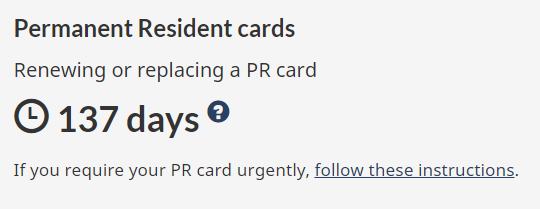June 15, 2023 Canadian French Talent Program Reform: Expand Career Scope And Reduce Language Requirements For Two Years And Multiple Levels Of Job Opportunities Are Available
June 15, 2023 Canadian French Talent Program Reform: Expand Career Scope And Reduce Language Requirements For Two Years And Multiple Levels Of Job Opportunities Are Available
On June 15, 2023, Canadian Immigration Minister Sean Fraser announced the latest reform of the French-speaking talent program to expand the scope of careers.
On June 15, 2023, Canadian Immigration Minister Sean announced the reform of the latest French-speaking talent program, expanding career scope and reducing language requirements for two years!
Scan the QR code below to customize your immigration plan for free!
The French Talent Program (France) was originally launched in 2016 to help employers outside Quebec absorb French talent. Initially, applicants must have high-skilled job opportunities at Canadian occupation level 0, 1, 2, and 3.
This time, the expansion of all occupational levels (except junior agricultural work) is no longer limited to highly skilled work. French-speaking talents can gain Canadian work experience and increase the likelihood of permanent residence.

As the scope of careers expands, including job opportunities with career scores of 4 and 5 in Canada (except junior agricultural jobs), you can apply for a work visa in Canada without the LMIA Department of Labor approval.
Canada's C-13 Act includes immigration into the Official Languages Act (OLA) for the first time. Ola is a federal regulation that makes English and French the official languages of Canada. The New Law modernized the Official Languages Act, and he recognized that French is the official language of Canada under threat and must be protected. It is divided into three parts. Part I amends the Official Languages Act, Part II provides for the use of French people in private enterprises under federal supervision, and Part III outlines legal applications for legislation.
The new law introduces immigration to the Official Languages Act for the first time, recognizing the importance of French-speaking immigration to the French-speaking ethnic minority communities outside Quebec.
Measures related to immigration include legislative changes. In particular, Canadian Immigration, Refugee and Citizenship (IRCC) has an obligation to adopt a French-speaking immigration policy with goals, goals and indicators.

Furthermore, awareness of immigration is one of the factors that helps maintain or increase the population weight of French-speaking ethnic minority communities.
The law also gives individuals working and receiving French services in French-speaking services in French-speaking or French-speaking communities outside Quebec. In addition, the law requires that all judges appointed by the Supreme Court of Canada must be bilingual to increase judicial access.
The Liberal Government believes that the new law will help increase French-speaking child care, education and health care in Canada, which lacks bilingual workers.
IRCC’s commitment to French-speaking immigration
The population weight of French-speaking ethnic minority communities is declining. The latest census for 2021 shows that the total proportion of French-speaking countries outside Quebec has risen from 3.6% in 2016 to 3.3% in 2021.

Recognizing this decline, the IRCC has long been committed to French-speaking immigration outside Quebec and ensures access to French reconciliation services.
In 2019, the IRCC launched the immigration strategy for French-speaking countries to strengthen efforts in the immigration process, from promoting and attracting IRCC missions abroad to choosing and integrating in Canada. The IRCC claims they are expected to achieve their goal of welcoming 4.4% of French-speaking Canadians outside Quebec by 2023.
Some key initiatives under the French-speaking immigration strategy include:
Finally, the IRCC is currently developing a French-speaking immigration policy, which includes setting a new and more important visit target for French-speaking immigrants outside Quebec.
Ontario employers guarantee immigration in Canada
Ontario’s nomination program (called OINP) is often called Ontario’s employer guaranteed immigration. This is to help Ontario meet labor market demand and economic development. It can also help Ontario employers recruit and retain foreign workers by nominating experienced and skilled applicants through the program. Applicants who have received the Ontario nomination are eligible to apply for a permanent residence visa from the Canadian federal government.
Ontario employers guarantee immigration in Canada
Application conditions
Academic requirements: Academic requirements are university or higher;
Work experience: In the past 5 years, I have 2 years of relevant work experience, and this work experience is highly relevant to the position I applied for;
Occupation category: Apply for occupation belongs to TEER 0/1/2/3
Rating requirements: Ontario EOI score meets the minimum invitation score;
Physical Health: Passed the physical examination requirement, no criminal record.
Ready-made employer
Software developer, programmer, IT-related positions, engineering management, personnel director.
Marketing Manager, Marketing Manager, Purchasing Manager, Architectural Designer, Administrative Manager. Operations Director, Financial Manager, Property Manager, Retail Manager, Hotel Manager, Accountant, Staff.





